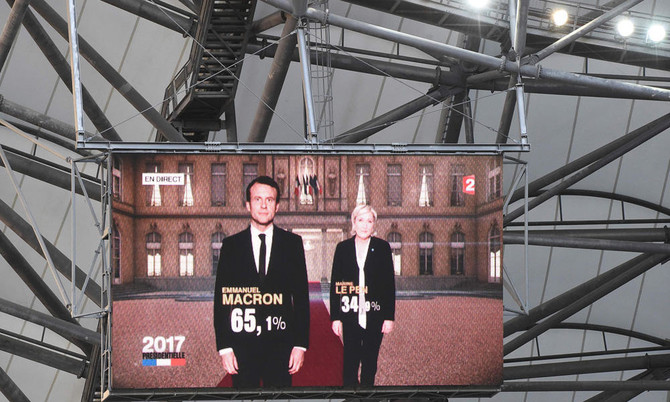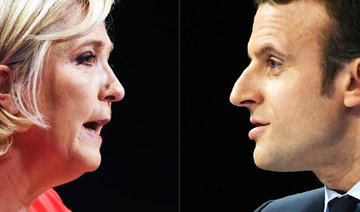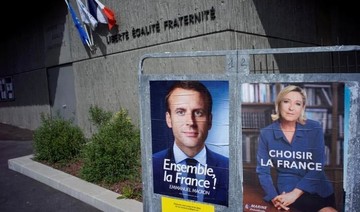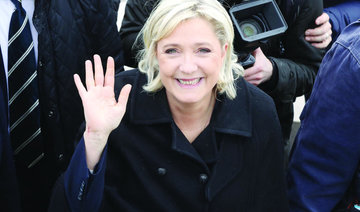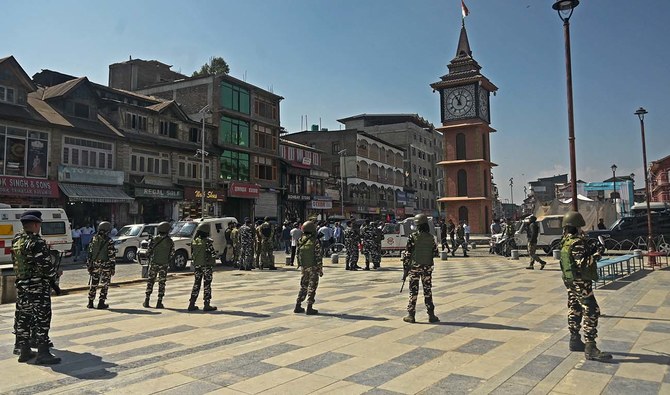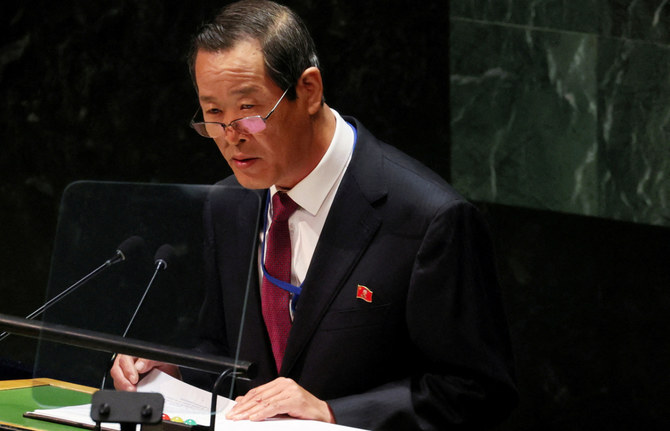PARIS: Pro-European centrist Emmanuel Macron resoundingly won France’s landmark presidential election, first estimates showed Sunday, heading off a fierce challenge from the far-right in a pivotal vote for the future of the divided country and Europe.
The victory caps an extraordinary rise for the 39-year-old former investment banker, who will become the country’s youngest-ever leader.
He has promised to heal a fractured and demoralized country after a vicious campaign that has exposed deep economic and social divisions, as well as tensions around identity and immigration.
Initial estimates showed Macron winning between 65.5 percent and 66.1 percent of ballots ahead of Le Pen on between 33.9 percent and 34.5 percent.
Unknown three years ago, Macron is now poised to become one of Europe’s most powerful leaders, bringing with him a hugely ambitious agenda of political and economic reform for France and the European Union.
The result will resonate worldwide and particularly in Brussels and Berlin where leaders will breathe a sigh of relief that Le Pen’s anti-EU, anti-globalization program has been defeated.
After Britain’s vote last year to leave the EU and Donald Trump’s victory in the US, the French election had been widely watched as a test of how high a tide of right-wing nationalism would rise.
Le Pen, 48, had portrayed the ballot as a contest between Macron and the “globalists” — in favor of open trade, immigration and shared sovereignty — and her “patriotic” vision of strong borders and national identities.
Outgoing President Francois Hollande, who plucked Macron from obscurity to name him minister in 2014, said voting “is always an important, significant act, heavy with consequences” as he cast his vote.
Huge challenges
Macron will now face huge challenges as he attempts to enact his domestic agenda of cutting state spending, easing labor laws, boosting education in deprived areas and extending new protections to the self-employed.
The philosophy and literature lover is inexperienced, has no political party and must try to fashion a working parliamentary majority after legislative elections next month.
His En Marche movement — “neither of the left, nor right” — has vowed to field candidates in all 577 constituencies, with half of them women and half of them newcomers to politics.
“We will reconstruct right to the end! We’ll keep our promise of renewal!” he said during his last campaign meeting in the southern city of Albi on Thursday.
Many analysts are skeptical about his ability to win a majority with En Marche candidates alone, meaning he would have to form a coalition of lawmakers committed to his agenda — something new under France’s current constitution.
Furthermore, his economic agenda, particularly plans to weaken labor regulations to fight stubbornly high unemployment, are likely to face fierce resistance from trade unions and his leftist opponents.
He also inherits a country which is still in a state of emergency following a string of Islamist-inspired attacks since 2015 that have killed more than 230 people.
Unpredictable election campaign
The vote Sunday followed one of the most unpredictable election campaigns in modern history marked by scandal, repeated surprises and a last-minute hacking attack on Macron.
Hundreds of thousands of e-mails and documents stolen from his campaign were dumped online on Friday and then spread by anti-secrecy group WikiLeaks, leading the candidate to call it an attempt at “democratic destabilization.”
France’s election authority said publishing the documents could be a criminal offense, a warning flouted by Macron’s opponents and far-right activists online.
It was the latest twist in an election that has consistently wrong-footed observers as angry voters chose to eject establishment figures, including one-time favorite Francois Fillon, a rightwing ex-prime minister.
Unpopular Hollande was the first to bow to the rebellious mood in December as he declared he would be the first sitting president not to seek re-election in the French republic, founded in 1958.
In the first round of the presidential election on April 23, Macron topped the vote with 24.01 percent, followed by Le Pen on 21.30 percent, in a crowded field of 11 candidates.
The results revealed Macron was favored among wealthier, better educated citizens in cities, while Le Pen drew support in the countryside as well as poverty-hit areas in the south and rustbelt northeast.


